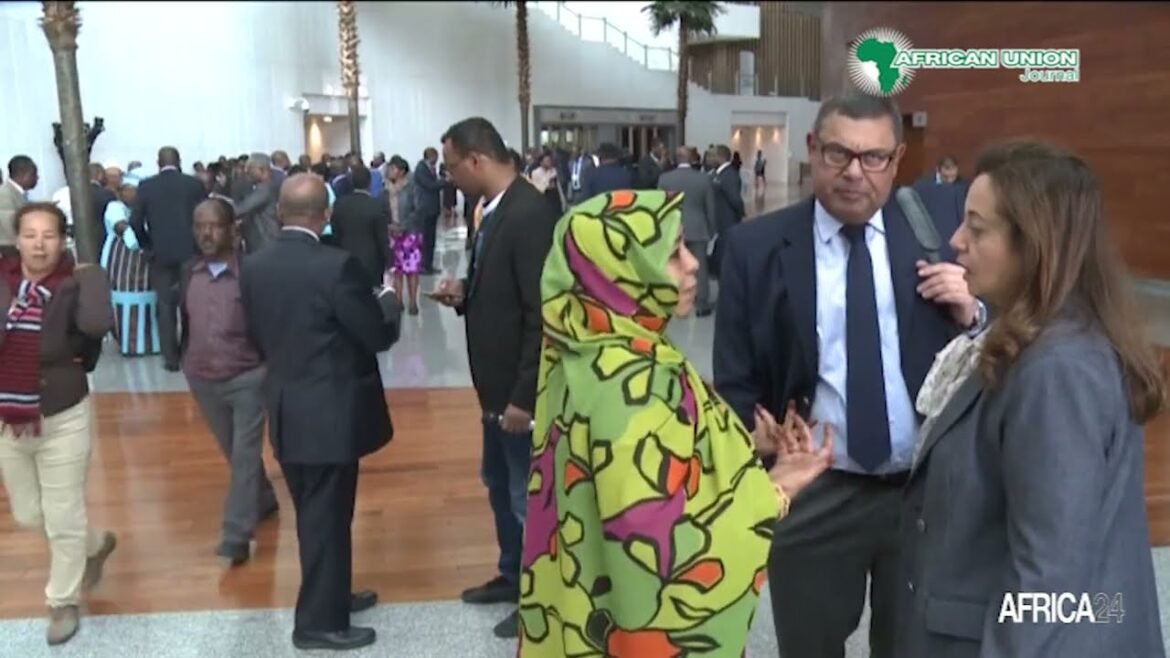Algeria will host the US$57 million Great Museum of Africa (GMA) which is heralded as a platform for presenting Africa’s diverse history, art and cultural achievements and will serve as a centre for education, research and cultural exchange, aiming to deepen understanding and appreciation of Africa’s contributions to the world.
The historic Villa Boulkin in Hussein Dey in Algiers, the capital of Algeria, will be the temporary headquarters of the GMA, which was inaugurated on 14 June 2023. The next day, Algeria and the African Union (AU) signed the GMA convention.
The GMA is a flagship project of the First Ten-Year Implementation Plan of the AU’s Agenda 2063.
The museum will focus on educating and inspiring generations of Africans and others to harness the continent’s history, heritage and endowments for advancement through systematically collecting, preserving, studying, interpreting and exhibiting African cultural properties and heritage for integration, intercultural engagements and economic prosperity.
But what significance does the GMA have for higher education?
Museum-university partnerships
Professor Ahmed Attia, the head of faculty affairs at the faculty of medical technology at the University of Tripoli, Libya, said the new museum could be considered a space of education because it comprises centres for the conservation, study and reflection on culture and heritage. Partnerships with universities will allow the new museum to be a hub of creativity and innovation through supporting university learning, teaching and research and offering internships and research fellowships for faculty, students and museum professionals.
“Besides acting as a catalyst for promoting cooperation among African universities in various fields, including history, tourism, indigenous knowledge and cultural diplomacy, the museum could also serve as a platform for dialogue among scholars, researchers and experts from African universities,” Attia said.
The exhibitions, conferences, workshops and educational programmes offered by the museum could also help African universities to spearhead knowledge across Africa and beyond, he added.
Professor Juma Shabani, director of the doctoral school at the University of Burundi and the former director of development, coordination and monitoring of UNESCO programmes with a special focus on Africa, agrees with Attia.
“African universities will benefit greatly from this new museum, which will provide them with major resources that they can use to promote inter-university research programmes in the fields of the arts, heritage, and cultural diversity,” he said.
“In turn, African universities will contribute to the museum’s development by making available research results they have produced.”
Building ‘brand Africa’ in HE
Professor Samir Khalaf Abd-El-Aal, a science expert at the National Research Centre in Egypt, said the GMA could also serve as a foundation to shape ‘brand Africa’ in HE, especially in fields included in the museum such as African civilisation, languages, culture and history.
“The new museum’s valuable collections and resources could help African universities and HE institutions to add distinctive African value to specific areas of study which could make it an international centre of excellence for such studies,” Abd-El-Aal said.
“This will help put African universities on the international education map for attracting foreign students, which will have a positive impact on local economies.”
Abd-El-Aal said: “The new museum could also boost the development of educational tourism by establishing cooperation between the HE and tourism sectors by combining educational and tourism products to attract individuals who most often practise educational tourism, including students, researchers, and academic staff.”
According to Shabani, the new museum will contribute to the decolonisation of HE by making cultural resources that reflect the knowledge produced by African societies over several centuries available to the world. “These resources could be used to give curricula a more balanced content,” he said.
Source : https://www.universityworldnews.com/post-mobile.php?story=20230625214821149





